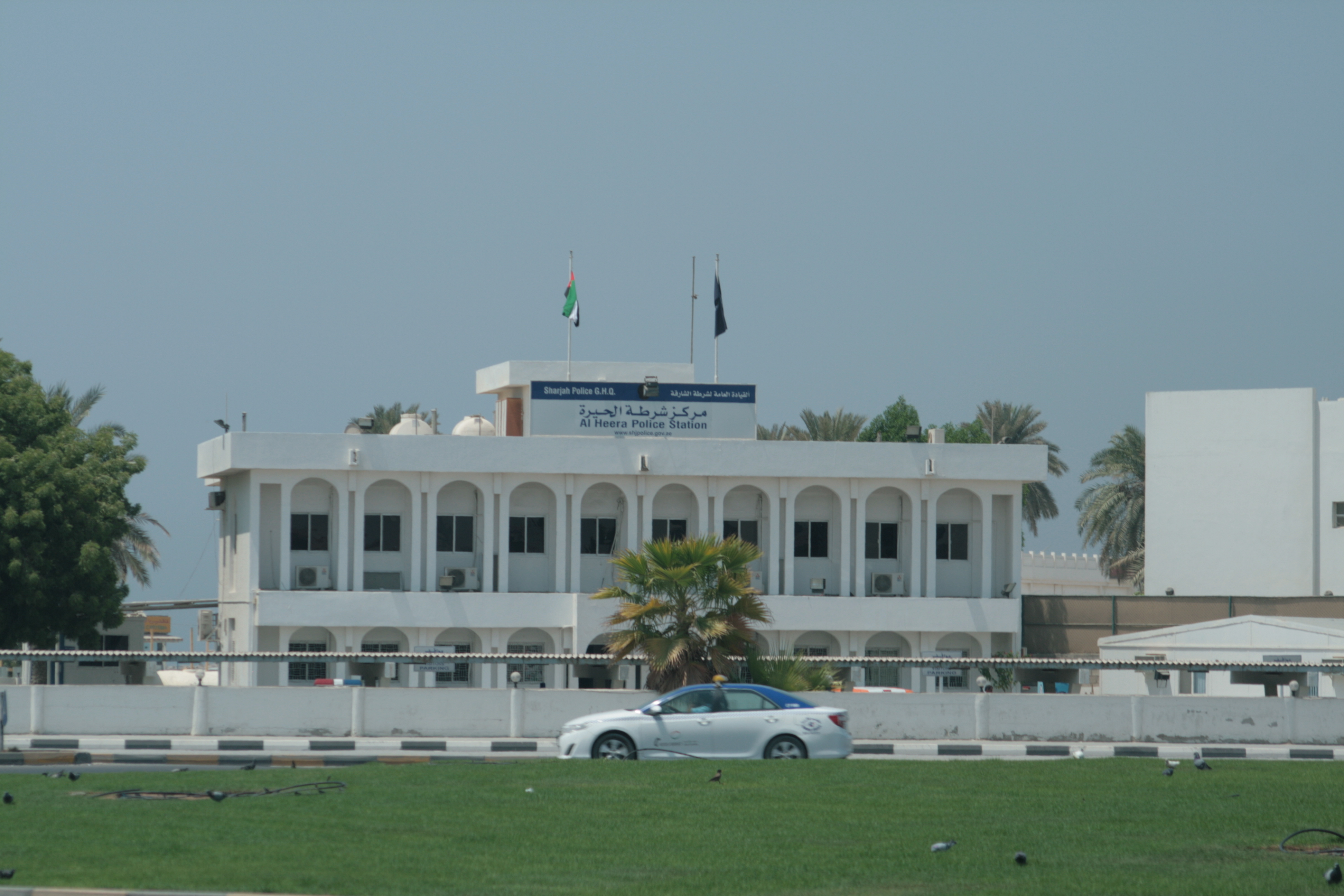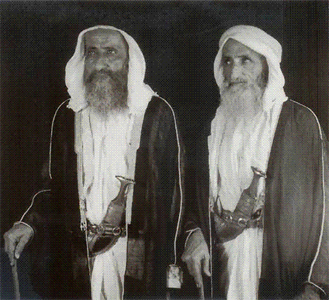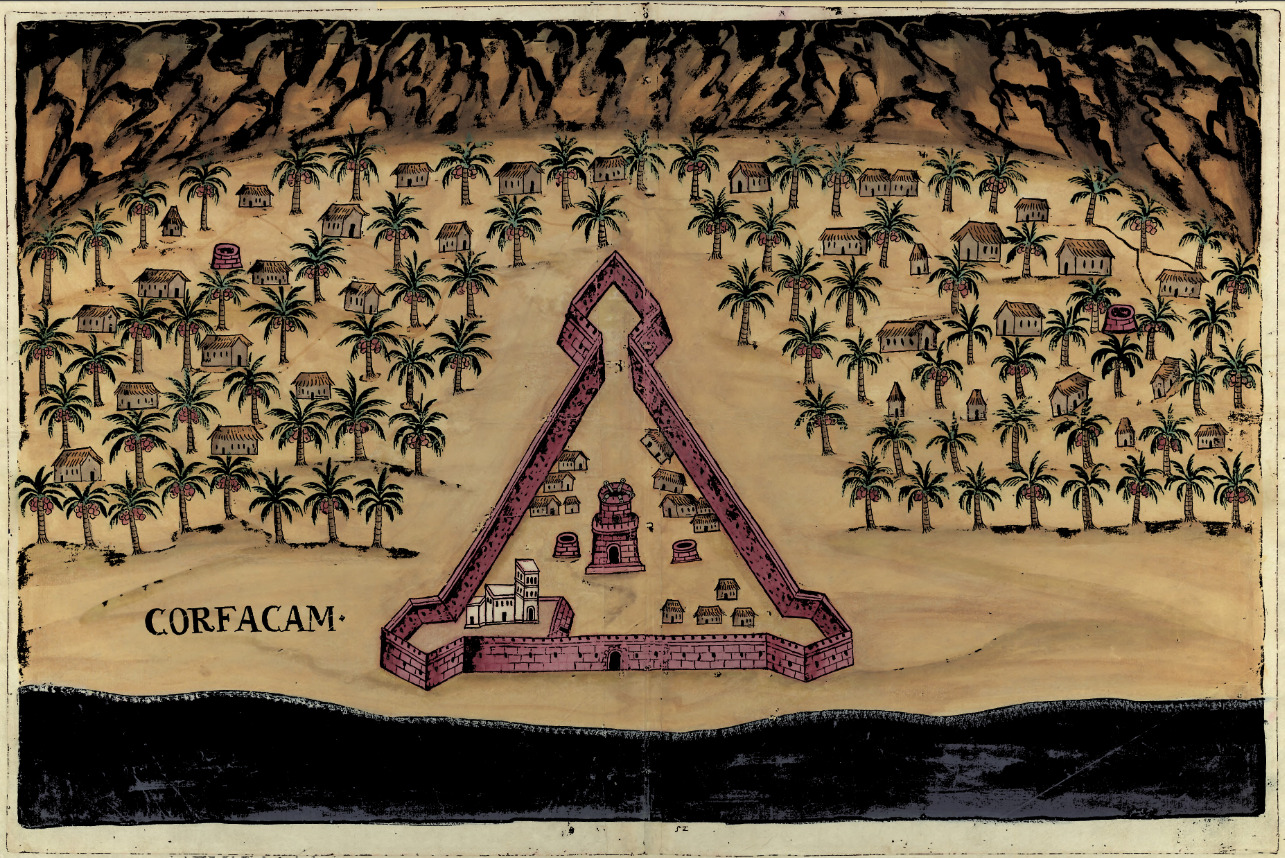|
Khalid Bin Ahmad Al Qasimi
Sheikh Khalid bin Ahmad Al Qasimi was the Ruler of Sharjah, a Trucial State and now one of the United Arab Emirates, from 1914–1924 and Ras Al Khaimah from 1914–1921. He acceded on the death of Saqr bin Khalid Al Qasimi. His rule was tumultuous and unpopular, marked by internecine conflicts and public discontent and saw the final disintegration of the Al Qasimi's joint rule over Sharjah and Ras Al Khaimah. Deposed as Ruler of Sharjah in 1924, he went on to become ruler of Dhaid and Kalba (itself recognised by the British as a Trucial State) and a highly influential figure in the ''Shamaliyah'' (the east coast of the peninsula). Accession Saqr bin Khalid Al Qasimi nominated his cousin, Khalid bin Ahmad, as his successor shortly before his death, as his own sons were still minors. One of Khalid bin Ahmad's first acts on becoming Ruler of Sharjah was to settle the question of Jazirat Al Hamra. Home to some 500 houses of the Za'ab tribe (the Emirati family name Al Zaabi deri ... [...More Info...] [...Related Items...] OR: [Wikipedia] [Google] [Baidu] |
Sheikh
Sheikh (pronounced or ; ar, شيخ ' , mostly pronounced , plural ' )—also transliterated sheekh, sheyikh, shaykh, shayk, shekh, shaik and Shaikh, shak—is an honorific title in the Arabic language. It commonly designates a chief of a tribe or a royal family member in Arabian countries, in some countries it is also given to those of great knowledge in religious affairs as a surname by a prestige religious leader from a chain of Sufi scholars. It is also commonly used to refer to a Muslim religious scholar. It is also used as an honorary title by people claiming to be descended from Hasan ibn Ali and Husayn ibn Ali both patrilineal and matrilineal who are grandsons of the Islamic prophet Muhammad. The term is literally translated to " Elder" (is also translated to "Lord/Master" in a monarchical context). The word 'sheikh' is mentioned in the 23rd verse of Surah Al-Qasas in the Quran. Etymology and meaning The word in Arabic stems from a triliteral root connected with a ... [...More Info...] [...Related Items...] OR: [Wikipedia] [Google] [Baidu] |
Al Heera
Al Heera is a suburb in Northern Sharjah (emirate), Sharjah in the United Arab Emirates, traditionally home to the Darawishah, part of the Al Bu Shamis section of the Na'im tribe. At one stage declaring its independence from Sharjah, with its own Sheikh, it formally became part of the Emirate of Sharjah in 1942 on the death of its Ruler, Abdulrahman Al Shamsi. A coastal settlement with a small harbour formerly used by a number of fishermen and pleasure boat owners, its main distinguishing feature today is its police station, converted in 2019 into the 'Al Heera Literature Society' building. The original coastal fishing village, built mainly of traditional Emirati adobe and coral houses, sat along the corniche in the area immediately behind the Al Heera Police Station but fell into disuse and was home to taxi drivers and illegal labourers through the 1990s until it was cleared. Little remains today to mark where the original settlement existed. History Al Heera is first mentioned ... [...More Info...] [...Related Items...] OR: [Wikipedia] [Google] [Baidu] |
19th-century Monarchs In The Middle East
The 19th (nineteenth) century began on 1 January 1801 ( MDCCCI), and ended on 31 December 1900 ( MCM). The 19th century was the ninth century of the 2nd millennium. The 19th century was characterized by vast social upheaval. Slavery was abolished in much of Europe and the Americas. The First Industrial Revolution, though it began in the late 18th century, expanding beyond its British homeland for the first time during this century, particularly remaking the economies and societies of the Low Countries, the Rhineland, Northern Italy, and the Northeastern United States. A few decades later, the Second Industrial Revolution led to ever more massive urbanization and much higher levels of productivity, profit, and prosperity, a pattern that continued into the 20th century. The Islamic gunpowder empires fell into decline and European imperialism brought much of South Asia, Southeast Asia, and almost all of Africa under colonial rule. It was also marked by the collapse of the large ... [...More Info...] [...Related Items...] OR: [Wikipedia] [Google] [Baidu] |
House Of Al Qasimi
Al Qasimi ( ar, القواسم, spelled sometimes as Al Qassimi or Al Qassemi; plural: Al Qawasem ar, القواسم and, archaically, Joasmee) is an Arab dynasty in the Persian Gulf that rules Sharjah and Ras Al Khaimah, today forming two of the seven emirates of the United Arab Emirates. They are one of the longest reigning royal families in the Arabian peninsula. Historically, the "Qawasim" were a confederation of Sunni tribes in south eastern Gulf region surrounding the cities of Ras al-Khaimah and Sharjah; and faced strong rivalry with the Omani empire for naval domination along the Persian Gulf. Due to their allegiance to the Wahhabi Emirate of Dir'iyah, the British Empire branded them as "pirates" and fought two major military campaigns against them in 1809 and 1819. Origin The dynasty claims to be descended from the Islamic prophet Muhammad. During the 18th century, Arabian Peninsula witnessed a revolutionary socio-political and religious transformation under the r ... [...More Info...] [...Related Items...] OR: [Wikipedia] [Google] [Baidu] |
Sheikhs Of The Emirate Of Sharjah
Sheikh (pronounced or ; ar, شيخ ' , mostly pronounced , plural ' )—also transliterated sheekh, sheyikh, shaykh, shayk, shekh, shaik and Shaikh, shak—is an honorific title in the Arabic language. It commonly designates a chief of a tribe or a royal family member in Arabian countries, in some countries it is also given to those of great knowledge in religious affairs as a surname by a prestige religious leader from a chain of Sufi scholars. It is also commonly used to refer to a Muslim religious scholar. It is also used as an honorary title by people claiming to be descended from Hasan ibn Ali and Husayn ibn Ali both patrilineal and matrilineal who are grandsons of the Islamic prophet Muhammad. The term is literally translated to " Elder" (is also translated to "Lord/Master" in a monarchical context). The word 'sheikh' is mentioned in the 23rd verse of Surah Al-Qasas in the Quran. Etymology and meaning The word in Arabic stems from a triliteral root connected with a ... [...More Info...] [...Related Items...] OR: [Wikipedia] [Google] [Baidu] |
Bani Qitab
The Bani Qitab ( ar, بني كتب) is a tribe of the United Arab Emirates (UAE). The singular form of the name, Al Ketbi, is a common family name in the Northern UAE today. Consisting of a settled southern section and a nomadic northern section, the tribe was long influential in the conduct of affairs in the interior of the Trucial States. The Northern branch mostly settled in the inland towns of Dhaid and Al Falayah. Settlement The tribe consisted, at the turn of the 19th century, of some 2,100 nomadic Bedouin (of whom some 600 were fighting men) and 2,700 settled people. The Bedouin ''dar'', or district, of the Bani Qitab stretched from South of the Buraimi oasis to the Eastern foothills of the Hajar Mountains, the Jiri plain to the North of Sharjah and the fertile area around Sharjah's inland oasis town of Dhaid. The Southern Bani Qitab, some 500 households, settled around the village of Aflaj Bani Qitab in the Dhahirah area. Over time these separated from the Northern secti ... [...More Info...] [...Related Items...] OR: [Wikipedia] [Google] [Baidu] |
Bedouin
The Bedouin, Beduin, or Bedu (; , singular ) are nomadic Arab tribes who have historically inhabited the desert regions in the Arabian Peninsula, North Africa, the Levant, and Mesopotamia. The Bedouin originated in the Syrian Desert and Arabian Desert but spread across the rest of the Arab world in West Asia and North Africa after the spread of Islam. The English word ''bedouin'' comes from the Arabic ''badawī'', which means "desert dweller", and is traditionally contrasted with ''ḥāḍir'', the term for sedentary people. Bedouin territory stretches from the vast deserts of North Africa to the rocky sands of the Middle East. They are traditionally divided into tribes, or clans (known in Arabic as ''ʿašāʾir''; or ''qabāʾil'' ), and historically share a common culture of herding camels and goats. The vast majority of Bedouins adhere to Islam, although there are some fewer numbers of Christian Bedouins present in the Fertile Crescent. Bedouins have been referred ... [...More Info...] [...Related Items...] OR: [Wikipedia] [Google] [Baidu] |
Khor Fakkan
Khor Fakkan ( ar, خَوْر فَكَّان, Khawr Fakkān) is a city and exclave of the Emirate of Sharjah, located on the east coast of the United Arab Emirates (UAE), facing the Gulf of Oman, and geographically surrounded by the Emirate of Fujairah. The city, the second largest on the east coast after Fujairah City, is set on the bay of Khor Fakkan, which means "Creek of Two Jaws". It is the site of Khor Fakkan Container Terminal, the only natural deep-sea port in the region and one of the major container ports in the UAE. The Port of Khor Fakkan faces the Emirate of Sharjah’s eastern seaboard, extending connections with Asia and the Far East. This port is one of the Emirate’s three ports. It is also a popular spot among domestic tourists due to its white sand beaches and coral reefs that attract many marine life enthusiasts. Khor Fakkan beach lies to the north of the center of the town. Khor Fakkan is located on the east coast of the UAE, between the Shumayliyah Mountains ... [...More Info...] [...Related Items...] OR: [Wikipedia] [Google] [Baidu] |
Imperial Airways
Imperial Airways was the early British commercial long-range airline, operating from 1924 to 1939 and principally serving the British Empire routes to South Africa, India, Australia and the Far East, including Malaya and Hong Kong. Passengers were typically businessmen or colonial administrators, and most flights carried about 20 passengers or less. Accidents were frequent: in the first six years, 32 people died in seven incidents. Imperial Airways never achieved the levels of technological innovation of its competitors and was merged into the British Overseas Airways Corporation (BOAC) in 1939. BOAC in turn merged with the British European Airways (BEA) in 1974 to form British Airways. Background The establishment of Imperial Airways occurred in the context of facilitating overseas settlement by making travel to and from the colonies quicker, and that flight would also speed up colonial government and trade that was until then dependent upon ships. The launch of the airline ... [...More Info...] [...Related Items...] OR: [Wikipedia] [Google] [Baidu] |
Maria Theresa Thaler
The Maria Theresa thaler (MTT) is a silver bullion coin and a type of Conventionsthaler that has been used in world trade continuously since it was first minted in 1741. It is named after Maria Theresa who ruled Austria, Hungary, and Bohemia from 1740 to 1780 and is depicted on the coin. History In 1741 the first MTT was struck according to the Reichsthaler standard with of a Cologne mark of fine silver, or 25.98 grams. In 1750 a new thaler was struck with a gross weight of of 1 Vienna mark of silver, fine (with a fine silver content of 23.39 grams, or of a Cologne mark). In 1751 this new standard Conventionsthaler was effectively adopted across the German-speaking world when it was accepted formally in the Bavarian monetary convention. This new, post-1751 thaler has continued as a trade coin ever since. Since the death of Maria Theresa in 1780, the coin has always been dated 1780. On 19 September 1857, Emperor Francis Joseph of Austria declared the Maria Theresa thaler t ... [...More Info...] [...Related Items...] OR: [Wikipedia] [Google] [Baidu] |
Dhaid Fort
Dhaid Fort, (Also known as ''Al Hisn Dhaid'') is a restored C18th fortification in the city of Dhaid, Sharjah, in the United Arab Emirates. It has long been an important stronghold for the Ruling families of Sharjah and Ras Al Khaimah and a key strategic asset in maintaining a historical Qawasim dominance of the inland areas of the Northern Emirates. Heritage The reconstruction of the ruined fort took place between 2017 and 2021 and was undertaken on the orders of the Ruler of Sharjah and noted historian, Dr Sultan bin Muhammed Al Qasimi. The original fortification dates back to 1750. The reconstruction of the fort and surrounding area involved the demolition of a number of illegal buildings, including labour accommodation. The fort is intended to form the centre of a new heritage area in the city, including a public square, the restoration of the Al-Sharia Mosque, the construction of a folklore market and majlis as well as a wildlife museum. Dhaid Fort and the city's extensive ... [...More Info...] [...Related Items...] OR: [Wikipedia] [Google] [Baidu] |
Umm Al Quwain
Umm Al Quwain is the capital and largest city of the Emirate of Umm Al Quwain in the United Arab Emirates. The city is located on the peninsula of Khor Al Bidiyah, with the nearest major cities being Sharjah to the southwest and Ras Al Khaimah to the northeast. There are mangroves A mangrove is a shrub or tree that grows in coastal saline or brackish water. The term is also used for tropical coastal vegetation consisting of such species. Mangroves are taxonomically diverse, as a result of convergent evolution in several ... outside the city along the coast, with the local economy being largely fishing. References Populated places in Umm Al Quwain Cities in the United Arab Emirates Umm Al Quwain {{UnitedArabEmirates-geo-stub ... [...More Info...] [...Related Items...] OR: [Wikipedia] [Google] [Baidu] |








